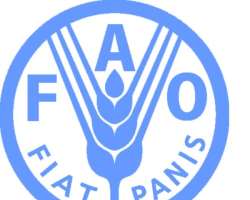Putting Swaziland's smallholders first / EU and FAO's efforts to revitalize Swazi agriculture pick up steam

ROME, Italy, September 21, 2012/African Press Organization (APO)/ -- Rural farmers in Swaziland are starting to reap the fruits of a comprehensive effort by the government and FAO with support of the EU to reverse the country's declining agricultural productivity.
Consecutive years of drought, a crushing aids pandemic, decades of economic slowdown and more recent soaring prices of food and agricultural inputs: it has become increasingly hard to make a living for Swaziland's cash-strapped rural population, highly dependent on subsistence farming.
According to FAO's most recent hunger figures, almost 20 percent of the country's one million people is undernourished.
Since 2009, the EU has been supporting a wide-ranging initiative of the government and FAO to raise nutrition levels of the rural population and stimulate their economic growth potential, known as the Swaziland Agricultural Development Project (SADP), a 5-years programme funded with over €14 million of EU and almost €350 000 by FAO.
Although it was challenging to get such a complex project off the ground, Amadou Traoré, the EU's chargé d'affaires a.i. in Swaziland feels that things are moving in the right direction. "European taxpayers are willing to show their generosity," he says, "but especially now, when Europe itself experiences financial and economic difficulties, they want to see results."
Louise McDonald, country program manager for the International Fund for Agricultural Development (IFAD) for Swaziland, says that SADP's achievements have strengthened collaboration between IFAD and FAO in assisting the government and smallholder farmers. "Together, we will work on bridging SADP's activities with a US$ 47 million program to be co-financed by IFAD", she says.
Smallholders
Fundamentally, SADP is all about smallholders, says Nehru Essomba, the project's Chief Technical Advisor: "You cannot tackle rural poverty, if you don't put the smallholder farmers first."
Connecting farmers to the market is a major challenge, Essomba says. So close to South Africa with its big scale producers, the environment is extremely competitive. SADP is setting up a €1 million Marketing Investing Fund, particularly to promote niche crops that offer small farmers a comparative advantage on the market place.
Equally important is to improve the environment in which the agricultural sector operates, both institutionally and physically. While major infrastructural rehabilitation works are being prepared, policies relating to research and extension are being updated and large scale capacity building of farmers, organisations and extension workers is underway.
At the same time, SADP helps spreading good agricultural practices, important for farmers to increase their productivity, while preserving the environment and lessen the pressure on Swaziland's limited natural resources. So far, more than 2 000 farmers have been trained in a wide range of practices, including conservation agriculture and agro-forestry.
Holding on
"Food security will come in two ways: by growing your own food and by growing to sell at the market," says Dr. Robert Thwala, Principal Secretary of Swaziland's Ministry of Agriculture, explaining SADP's focus on improving crop and livestock production and on agro-business development.
In Swaziland, where HIV prevalence is the highest in the world, the most vulnerable among the rural poor are the elderly and the youth, who have lost either parents or children, as the generation in between was decimated by the aids pandemic.
A total of 340 vegetable gardens have been established for vulnerable families to grow vegetables and herbs for household consumption, or in case of excess production, for sales to community members. Over 2000 people have directly benefited from the gardens, while also receiving nutritional education, through demonstrations in food preparation and processing.
To support the younger generation, SADP is helping youth groups set up small agricultural businesses. Sixty groups, comprising around 2 500 youngsters, are engaged in poultry farming, pig production or vegetable and field crop production. They get the equipment, tools, inputs, medicines and training to make their business run.
The Mhawu Youth Club from the Ngudzine area in southern Swaziland is raising chickens. Sixteen year old member Nomcebo Simelane finds a lot of encouragement at her club: "Your peers tell you that when you want to make your dreams come true, you should just hold on."
Moreover, the poultry business offers her a way to do just that. She hopes that she will make enough money out of it to go to university and become a nurse.
